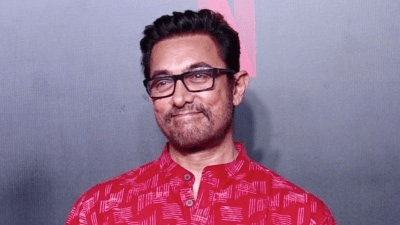You146;ve got retail
Retailing of the organised kind in India has never had it this good. Take a look around you, and what do you find? Coffee bars, lifestyle de...

Retailing of the organised kind in India has never had it this good.
Take a look around you, and what do you find? Coffee bars, lifestyle department stores and swanky food and grocery outlets and more. If that isn8217;t convincing enough, get a load of this.
There are at least 200 large malls in planning or construction stage across the country. And over 25 million sq ft of new retail space is expected to come to the market in the next 36-48 months. The activity is not just confined to the metros, even smaller places like Coimbatore, Meerut, Dehradun, Kanpur, Indore are on the retailer8217;s radar.
If the last decade saw a good number of entrants burn out due to lack of sustainable business models, a significant number of retail players like Westside, Pantaloon, Shoppers8217; Stop and Food World have now learnt the rules of the game.
These players have not only managed to consolidate, but are also surging ahead with large scale expansion plans. The fact that they are clocking good profits and high turnovers only makes things better.
The organised retailing sector, estimated at Rs 18,000 crore in 2002-03, is poised to grow further by another 20-25 per cent during the current fiscal, says retail consultancy firm KSA Technopak.
The firm also adds that the segment8217;s market share, 3 per cent of the 200 billion retail market in 2000, should go up to 5 per cent by 2005. The relative surge ahead, says KSA, is because each of them has adopted a distinct style of expansion and functioning.
Shoppers8217; Stop is the undisputed leader in the department store format, and Westside has very successfully emulated the Marks 038; Spencer model of 100 per cent private label. Giant, on the other hand, has successfully developed a hypermarket/cash- and-carry hybrid.
While Food World and Nilgiris have successfully shown the viability of the supermarket format and the ability to coexist with the ubiquitous kirana store, Pantaloon and The Home Store have both demonstrated the potential of 8216;specialty8217; retailing in India. And with success, comes the confidence that fuels expansion. Take Shoppers8217; Stop, for instance. Just like last year, there will be four more new stores this year at different locations in Kolkata, Mumbai and Bangalore. Its sales turnover is expected to touch Rs 430 crore in 2003-04 compared to Rs 302 crore sales clocked in 2002-03. The firm8217;s profit is expected to more than double.
Says Sanjay Bade, Shoppers8217; Stop director operations, 8220;The success is the testimony of consumers8217; confidence in our kind of retail format and also because in the urban market, the consumer is mostly willing to spend.8221;
Tata8217;s Westside is another kind of success story, one based on a single label format. According to Himanshu Chakrawarti, Trent Ltd8217;s the holding company general manager, this arrangement has many advantages. 8220;Being a brand retailer, we are able to develop our style and image in a manner whereby customers can build a relationship with us,8221; he says. 8220;We also have the flexibility of pricing and are able to fulfil the promise of affordable style.8221; The company has 11 stores in nine cities and plans to open two more this year in Noida and in Bangalore. Trent8217;s net profit at Rs 16.89 crore in 2002-03 was 65 per cent higher compared to the previous fiscal.
North-India-based Ebony has projected an 18 per cent growth rate during this fiscal. Despite the first quarter usually being slow in terms of sales, Ebony is way ahead of its projections, says managing director, B S Narula. The chain has consistently added two stores every year, but this year will see it upping the number of stores to four, two each in Delhi and Punjab at an additional investment pf Rs 30 crore. Ebony also expects to post at least 150 per cent increase in its net profit to Rs two crore in 2003-04 compared to Rs 80 lakh profit registered last fiscal.
According to KSA Technopak, at least three of the top ten global retail majors are expected to firm up their entry plans into India in the not too distant future. While German chain Metro is already present, Starbucks is also talking to various players.
Retailers feel that Indians are now ready to spend more than they need, which gives rise to out of town outlets, discount stores, malls and highway shopping space.
Also, political stability, a relatively robust economy and a ready acceptance of retail marts by the disposable-income-equipped young has helped. Moreover, KSA Technopak feels easing of real estate constraints a more positive outlook on behalf of investors and lenders towards retail financing has triggered growth at a faster pace.
Which is why a leading Indian business house, according to reports, has planned to invest in large greenfield retails projects. Textile giant Indo Rama has also announced its plans to enter into food and grocery retailing.
But, says KSA Technopak, the boom in retail needn8217;t necessarily mean the end of the ubiquitous kirana store. While it feels that there is room for every one here, the firm also indicated more and more of the kirana kind and watching and learning, often changing their business format.
- 01
- 02
- 03
- 04
- 05































